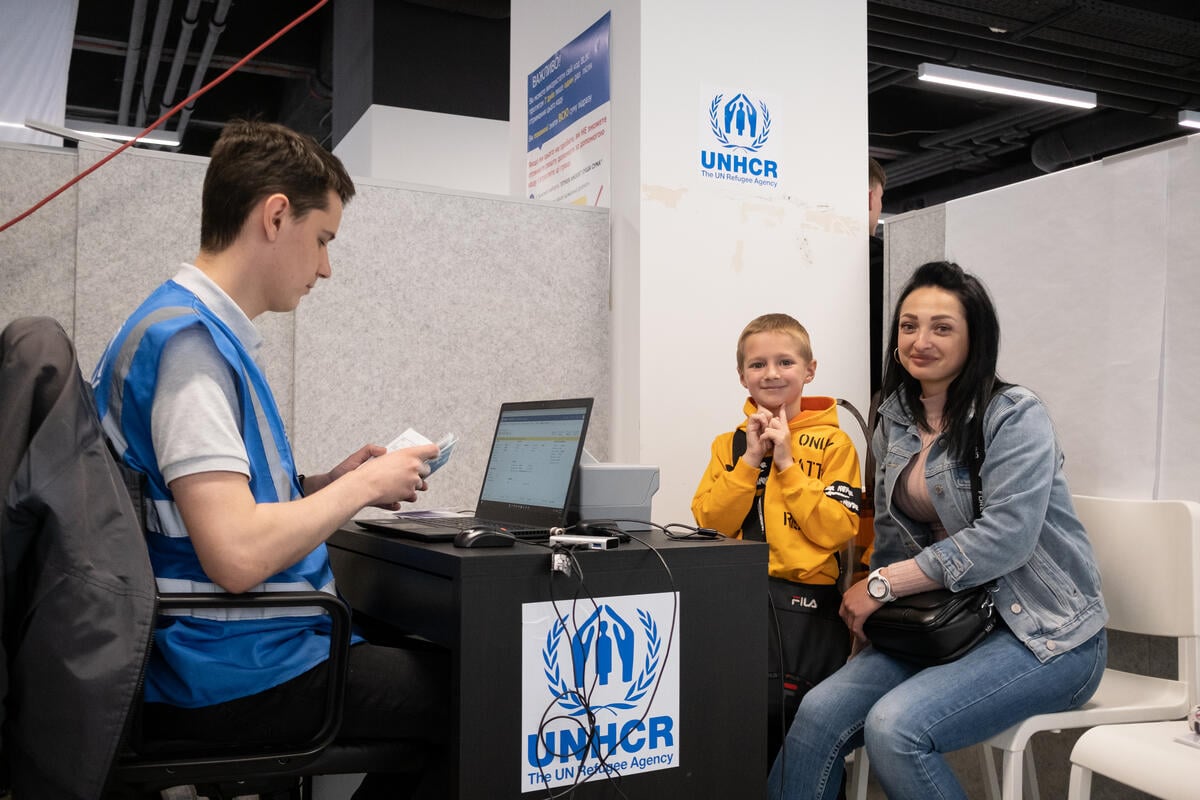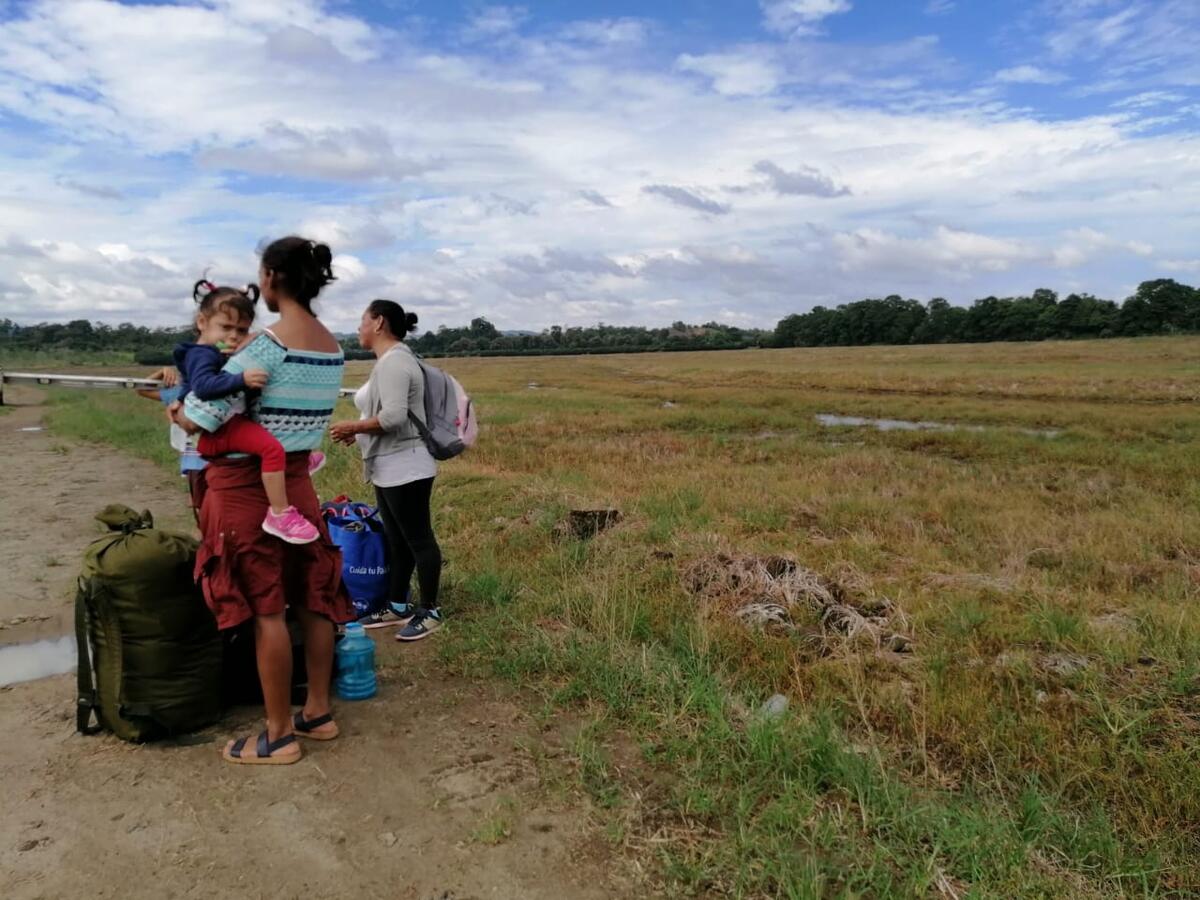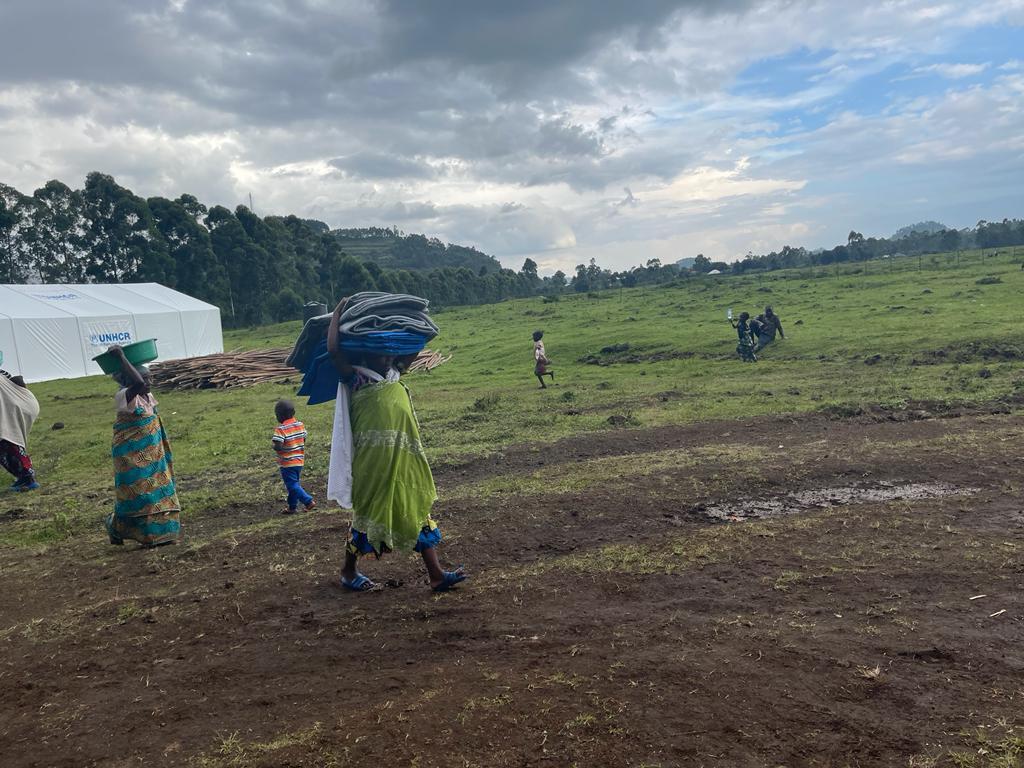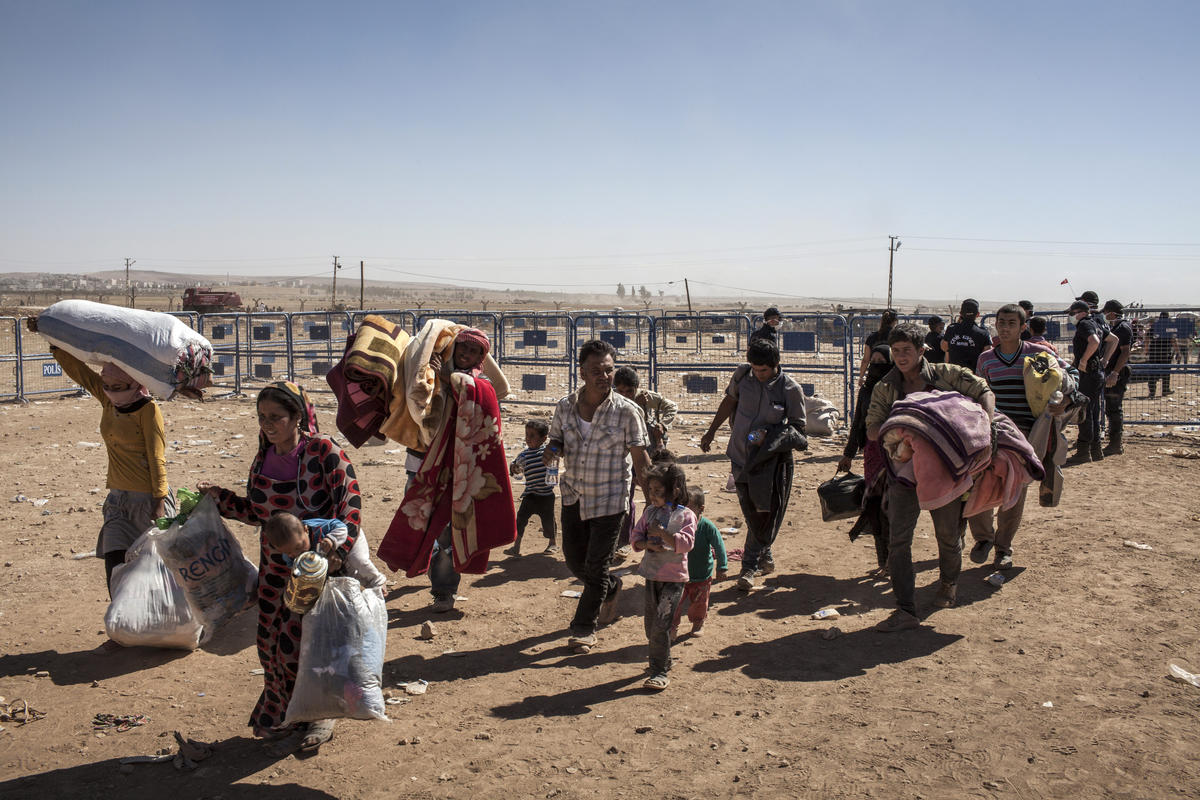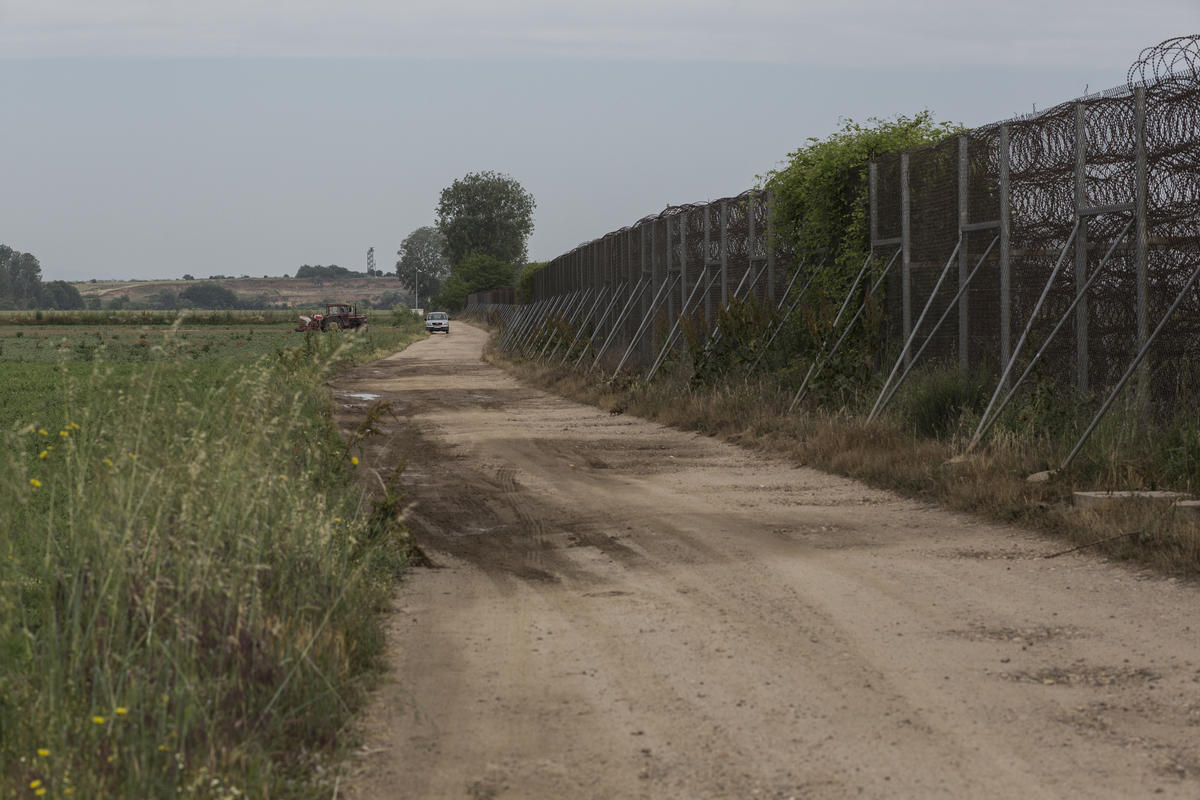English church leaders launch gift appeal for asylum seekers and refugees
English church leaders launch gift appeal for asylum seekers and refugees
LONDON, December 23, (UNHCR) - Amidst a media climate sometimes hostile towards refugees and asylum seekers, churchgoers from across England's Midlands are reaching out to exiles over the festive season by delivering gifts to those forced to seek protection in the United Kingdom.
Rev. Gill Jackson and Pat English, from the Social Responsibility of the Anglican Diocese of Leicester, are working to break down stereotypes of asylum seekers among people residing in rural parts of the Midlands, where many people are deeply suspicious of asylum seekers.
Before beginning their Christmas gift appeal, the Diocese did a survey and found that among the many destitute people living in the region, asylum seekers were particularly impoverished, with some even forced to sleep in rubbish skips.
"In Leicester we have a significant number of asylum seekers and refugees," Rev. Jackson said. "Over the past year we noticed a real increase in the number of destitute asylum seekers. This group has therefore not only suffered trauma in their countries of origin, but now find themselves living on the very margins of society in this country."
Jackson and English decided to try to link asylum seekers with churches in order to increase understanding amongst parishioners about why people are forced to seek asylum in the UK, and start the gift appeal.
"If you give me food you're as good as my mother," said one Zimbabwean refugee still too afraid to use her name. "I feel I have a family here," she said after receiving gifts under the initiative.
Loneliness and destitution amongst asylum seekers is a big concern for many people in the UK, especially churches. Church Action on Poverty, a Christian charitable organisation that works on poverty issues in the UK, is pushing for a change in what it views as harsh UK government policies towards asylum seekers.
Forty-seven leaders of various Christian churches recently spoke up about UK government policies they believe are leaving asylum seekers impoverished or forced to survive on food handouts.
Writing in The Times newspaper just as the Christmas season was getting underway, dozens of religious leaders called for a change to UK government policies which they said leave asylum-seeking families homeless and forced to live off food aid handouts.
"We believe that it is inhuman and unacceptable that some people seeking asylum are left homeless and destitute by government policies," the church leaders said. "As a society we have international moral and legal responsibilities to welcome those fleeing adversity from other parts of the world and provide social security. But the threat of destitution is being used as a way of pressuring refused asylum seekers to leave the country."
The church leaders, led by Archbishop of York Rt Rev Dr John Sentamu who arrived in the UK as a refugee decades ago after fleeing persecution in Idi Amin's Uganda, said they are particularly concerned about UK government policies they believe target rejected asylum seekers. Under government rules, rejected asylum seekers who do not agree to voluntarily return once their troubled homelands are deemed safe are removed from government-provided housing and support schemes.
"There are many people seeking asylum who have their cases refused but have no safe route to return or whose travel documents cause logistical problems for removal. There are also many cases where people are unjustly refused asylum," the church officials wrote in The Times.
Immigration Minister Tony McNulty responded to the church officials' letter by saying that aiding rejected asylum seekers is conditional and based on cooperation with the voluntary return process. He noted that the decision to halt support to asylum-seeking families following the rejection of their claims is not taken lightly.
Having been an asylum seeker himself, Archbishop Sentamu is better able to appreciate the challenges facing refugees and asylum seekers along with other disenfranchised groups, many believe. In his inaugural speech in York Minster last month, Archbishop Sentamu urged people to stand shoulder to shoulder with the vulnerable, demonised and dehumanised.
"He [the Archbishop of York] is able to talk to people of different kinds of beliefs, backgrounds and attitudes, partly because he has suffered so much himself. He has made a massive effort to reach out to marginalised people, whether or not they are religious," Carl Chinn, a Professor of Community History at the University of Birmingham, said in The Independent.
The concerns expressed by Archbishop Sentamu together with other religious leaders are not only fed by sometimes harsh government policies, but also the frequent negative coverage asylum seekers receive in some sections of the UK press.
In the week ahead of Christmas, some popular newspapers still worked to denigrate asylum seekers, suggesting they might try to obtain UK residency under a new civil partnership law permitting same sex marriages. Eye-catching stories were written up by several papers, such as one entitled "Registrars fear flood of bogus gay weddings by asylum seekers," despite failing to produce any evidence to support the story.
By Duncan Trevan



